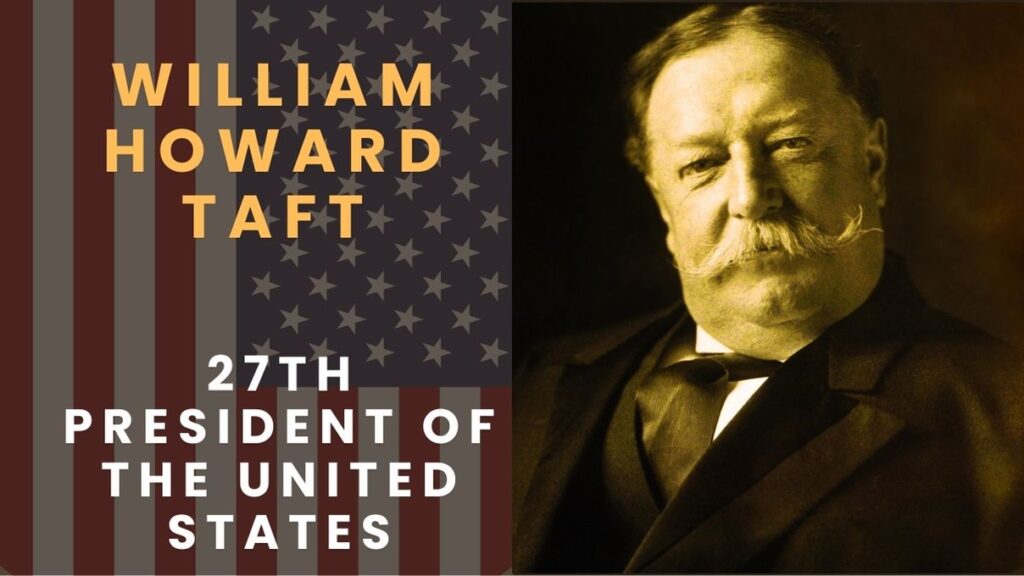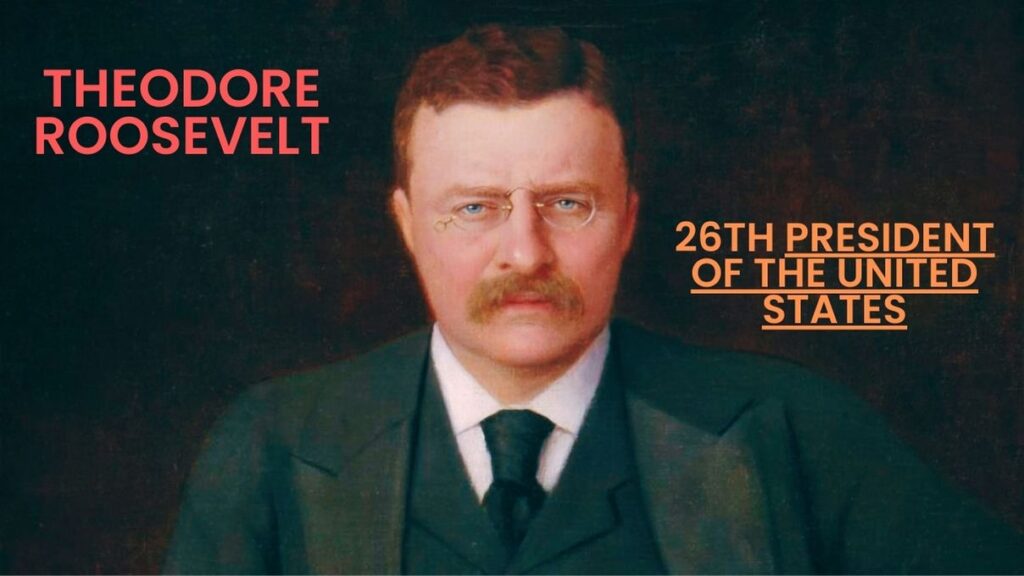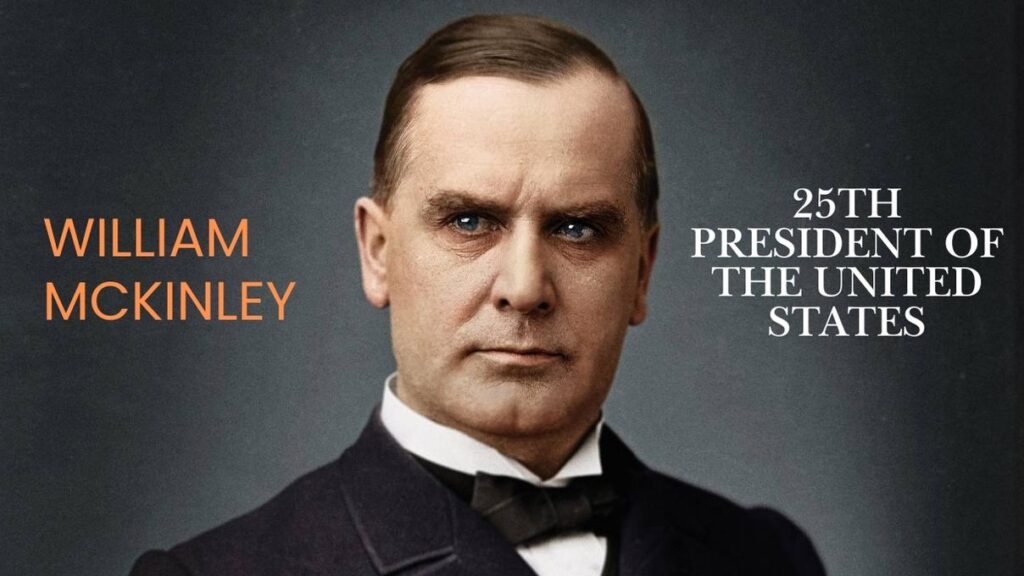William Henry Harrison, the ninth President of the United States, served briefly from March 4 to April 4, 1841, marking the shortest presidency in American history. He tragically became the first president to die in office, creating a temporary constitutional dilemma as the process of presidential succession was not fully defined at that time. Born into Virginia’s prominent Harrison family in 1773, he was the son of Benjamin Harrison V, a Founding Father.
Harrison’s early career was marked by military service and notable victories, including his leadership in the Battle of Tippecanoe against Tecumseh’s confederacy, which earned him the nickname “Old Tippecanoe.” He rose to the rank of major general during the War of 1812, leading American forces to victory at the Battle of the Thames in Upper Canada.
In addition to his military accomplishments, Harrison had a distinguished political career. He served as the Secretary of the Northwest Territory and later as its delegate in the U.S. House of Representatives. He also governed the Indiana Territory, where he negotiated significant treaties with Native American tribes, expanding American territory.
Returning to civilian life in Ohio, Harrison continued his political career, serving in the U.S. House of Representatives and briefly in the U.S. Senate. He later represented the United States as Minister Plenipotentiary to Gran Colombia.
Harrison’s presidential ambitions were realized in 1840 when he won the presidency as a Whig candidate, famously campaigning with the slogan “Tippecanoe and Tyler Too,” referring to his running mate John Tyler. His presidency was cut tragically short by pneumonia, sparking a national mourning period and leaving an indelible mark on American political history.
Despite his brief tenure, Harrison’s legacy includes his military leadership, contributions to American expansion, and innovative campaign tactics. He remains a figure of curiosity in presidential history, often omitted from typical presidential rankings due to the brevity of his presidency.
William Henry Harrison was the 9th President of the United States, serving for only 31 days in 1841, the shortest tenure in presidential history. He was a military officer and politician before becoming president, known for his role in the Battle of Tippecanoe during the War of 1812. His presidency was tragically cut short by pneumonia, making him the first U.S. president to die in office. Harrison’s brief time as president has left a lasting historical curiosity and is often remembered for his inaugural address, delivered on a cold, wet day without a coat, which is believed to have contributed to his illness.
Early Life and Education of William Henry Harrison
William Henry Harrison, born on February 9, 1773, at Berkeley Plantation in Charles City County, Virginia, was the youngest of seven children of Benjamin Harrison V and Elizabeth (Bassett) Harrison. His family, descended from English ancestors who settled in Virginia in the 1630s, held a prominent position in Virginia’s political and social circles. His father, a Virginia planter and delegate to the Continental Congress, notably signed the Declaration of Independence and later served as Virginia’s governor.
Early Education and College Years
Growing up just 30 miles from the historic Battle of Yorktown, where George Washington secured American independence, Harrison often referred to himself as a “child of the revolution.” He received his early education at home and later attended Hampden-Sydney College, where he studied a classical curriculum that included languages and philosophy.
After leaving college at age 14, Harrison continued his education under private tutors and briefly studied medicine at the University of Pennsylvania under the guidance of Dr. Benjamin Rush, a renowned Founding Father and educator. However, due to financial constraints and a growing interest in military affairs, Harrison left medical studies and pursued a career in the military with the encouragement of Governor Henry Lee III.
Early military career
Early Military Career of William Henry Harrison
William Henry Harrison began his military career on August 16, 1791, at the age of 18, when he was commissioned as an ensign in the Army. Assigned to the First American Regiment, he was stationed at Fort Washington in Cincinnati, within the Northwest Territory, during the ongoing Northwest Indian War.
Under the command of Major General “Mad Anthony” Wayne from 1792, Harrison quickly rose through the ranks. By 1793, he became Wayne’s aide-de-camp, acquiring valuable experience in frontier warfare. He played a pivotal role in Wayne’s decisive victory at the Battle of Fallen Timbers on August 20, 1794, effectively ending hostilities in the region. Wayne commended Harrison for his leadership and bravery, noting his crucial role in communicating orders and inspiring troops.
Harrison’s military service also saw him involved in diplomatic efforts. He was a signatory to the Treaty of Greenville in 1795, where Native American tribes ceded significant portions of their lands to the United States, paving the way for increased settlement in Ohio.
During this period, Harrison inherited part of his family’s estate in Virginia but sold it to his brother upon his mother’s death in 1793. He continued to advance in the military, achieving the rank of captain in May 1797 before resigning from the Army on June 1, 1798.
- 1st President of the United States
- 2nd President of the United States
- 3rd President of the United States
- 4th President of the United States
- 5th President of the United States
- 6th President of the United States
- 7th President of the United States
- 8th President of the United States
- 9th President of the United States
Marriage and family
William Henry Harrison first met Anna Tuthill Symmes in 1795 when he was 22 years old. Anna was the daughter of Anna Tuthill and Judge John Cleves Symmes, a Revolutionary War colonel and former representative to the Congress of the Confederation. When Harrison asked Judge Symmes for permission to marry Anna, he was initially refused. However, seizing an opportunity while Judge Symmes was away on business, the couple eloped and were married on November 25, 1795, at the North Bend home of Stephen Wood, treasurer of the Northwest Territory. Due to Harrison’s military duties, their honeymoon took place at Fort Washington.
Judge Symmes confronted Harrison two weeks later at a farewell dinner for General Wayne, questioning Harrison’s ability to support a family. Harrison famously replied, “by my sword, and my own right arm, sir.” Despite initial doubts, Harrison benefited from his father-in-law’s connections with land speculators, which allowed him to transition away from military service. Eventually, Judge Symmes sold the Harrisons 160 acres of land in North Bend, where they built their home and started a farm.
Throughout their marriage, Anna faced frequent health challenges due to numerous pregnancies, yet she outlived William by 23 years, passing away on February 25, 1864, at the age of 88.
The Harrisons were blessed with ten children, each contributing to their family’s legacy and future generations.
Political career
Harrison launched his political career by temporarily leaving the military on June 1, 1798. He campaigned within his social circle for a role in the Northwest Territorial government. With support from his close friend Timothy Pickering, who was then Secretary of State, and backed by Judge Symmes’ influence, Harrison was recommended to succeed Winthrop Sargent as the territorial secretary. President John Adams appointed Harrison to this position in July 1798.
Initially tasked with the meticulous recording of territorial activities, Harrison quickly grew restless and began to seek a position in the U.S. Congress.
U.S. Congress
Harrison’s prominence among the eastern aristocracy grew swiftly due to his reputation as a frontier leader and his successful management of a respected horse-breeding enterprise in the Northwest Territory. His influence extended to addressing the concerns of settlers grappling with high land costs, a consequence of congressional territorial policies.
In October 1799, as the Northwest Territory’s population grew, Harrison capitalized on his popularity and ran for the newly established congressional delegate position. His campaign focused on promoting further migration to the territory, a pivotal step towards eventual statehood.
At the age of 26, Harrison narrowly defeated Arthur St. Clair Jr. by one vote to become the Northwest Territory’s inaugural congressional delegate. Serving in the Sixth United States Congress from March 4, 1799, to May 14, 1800, Harrison wielded significant influence despite lacking voting rights on legislative bills. He chaired the Committee on Public Lands and championed the Land Act of 1800, which facilitated the purchase of smaller tracts of Northwest Territory land at reduced costs. This policy spurred rapid population growth as freeholders could now affordably acquire land with a minimal down payment of five percent.
Harrison’s legislative achievements also included overseeing the division of the Northwest Territory into two distinct sections. The eastern portion retained the name Northwest Territory, encompassing present-day Ohio and eastern Michigan, while the western section became the Indiana Territory, comprising present-day Indiana, Illinois, Wisconsin, a portion of western Michigan, and part of eastern Minnesota. This division, formalized in 1800, laid the groundwork for effective territorial governance.
Recognizing Harrison’s astute leadership and regional ties, President John Adams appointed him as the governor of the Indiana Territory on May 13, 1800. Confirmed by the Senate, Harrison resigned from Congress to assume this pivotal role, marking the beginning of his twelve-year tenure as the territory’s first governor.
Governorship of the Indiana Territory
On May 13, 1800, President John Adams appointed William Henry Harrison as the governor of the Indiana Territory, recognizing his ties to the western frontier and his perceived neutral political stance.
Harrison’s appointment was confirmed by the Senate, leading him to resign from Congress to assume the governorship. He took office in 1801, becoming the inaugural governor of the Indiana Territory and serving in this capacity for twelve years.
During his governorship, Harrison implemented policies aimed at fostering territorial growth and stability. He played a pivotal role in establishing effective governance across a vast region that encompassed present-day Indiana, Illinois, Wisconsin, a portion of Michigan, and part of Minnesota.
Harrison’s tenure as governor marked a period of significant expansion and development in the Indiana Territory, setting the stage for its eventual statehood and leaving a lasting impact on the region’s history and governance.
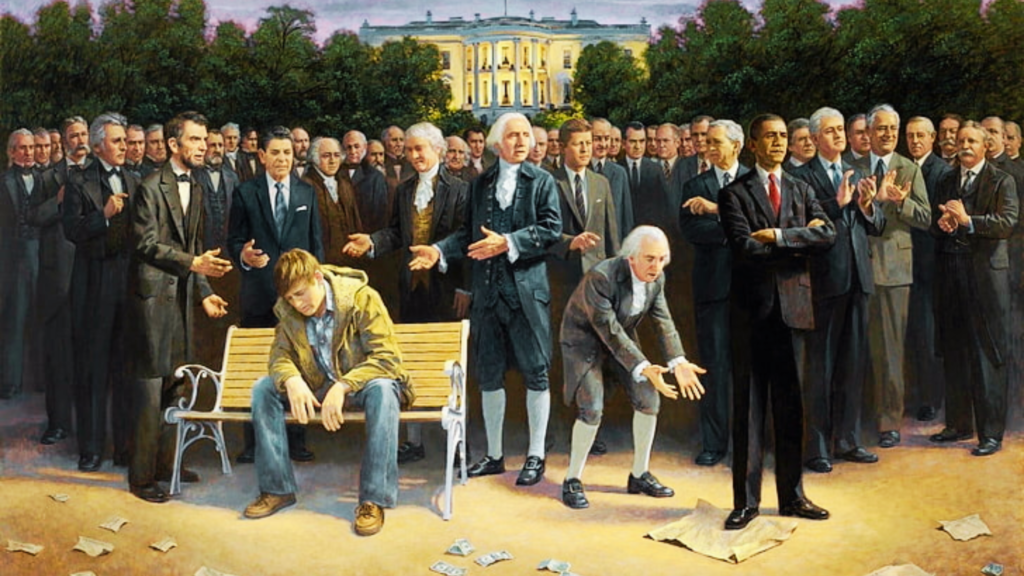
Governorship and Achievements in the Indiana Territory
William Henry Harrison assumed his duties as governor of the Indiana Territory on January 10, 1801, at Vincennes, the territory’s capital. Presidents Thomas Jefferson and James Madison, both members of the Democratic-Republican Party, recognized Harrison’s leadership and reappointed him as governor in 1803, 1806, and 1809.
In 1804, Harrison was temporarily assigned to oversee the civilian government of the District of Louisiana until it formally became the Louisiana Territory on July 4, 1805, under Brigadier General James Wilkinson’s governorship.
To establish a permanent residence, Harrison built Grouseland, a plantation-style home near Vincennes in 1805. This 26-room brick structure became a focal point of social and political life in the territory during his governorship. Additionally, Harrison’s efforts led to the founding of a university in Vincennes in 1801, which later became Vincennes University on November 29, 1806. As the territory expanded, the capital was relocated to Corydon in 1813, prompting Harrison to build a second home nearby, known as Harrison Valley.
During his tenure, Harrison focused on obtaining Indian lands to facilitate settlement and increase the territory’s population, prerequisites for achieving statehood. Despite controversies over land speculation and his personal gains, Harrison’s administration saw significant improvements in roads and infrastructure.
Harrison’s authority expanded in 1803 when he was granted the power to negotiate treaties with Native American tribes. His negotiations, such as the 1804 Treaty of St. Louis with the Sauk and Meskwaki tribes, aimed to acquire vast territories, often leading to tensions and disputes among indigenous groups.
While Harrison aggressively pursued land acquisition and fostered economic growth, his pro-slavery stance clashed with abolitionist sentiments in the Indiana Territory. His efforts to suspend Article VI of the Northwest Ordinance, which prohibited slavery, met staunch opposition from abolitionists who organized politically against him. The territorial legislature, under anti-slavery influence after 1809, repealed laws supporting indentured servitude, signaling a shift towards Indiana’s eventual statehood without slavery.
Harrison’s tenure as governor left a complex legacy, marked by his efforts to expand the territory and promote economic development, alongside contentious issues regarding Native American relations and slavery in the evolving frontier landscape.
Army general
Tecumseh’s War and the Battle of Tippecanoe
Indian resistance to American expansion escalated under the leadership of Shawnee brothers Tecumseh and Tenskwatawa (“The Prophet“), sparking a conflict known as Tecumseh’s War. Tenskwatawa, advocating for indigenous unity, convinced tribes that the Great Spirit would shield them from harm if they resisted settlers by withholding debts and abandoning Western practices.
William Henry Harrison, alerted to the unrest through tribal spies, sought military funding from President Madison amid delays. Attempts at negotiation faltered when Tecumseh confronted Harrison at Vincennes in August 1810, disputing the legitimacy of the Fort Wayne Treaty and warning against further settlement. Despite tense exchanges, a potential confrontation was defused by local Shawnee Chief Winamac.
Concerned about the threat posed by Tecumseh’s growing confederation, Harrison saw an opportunity in 1811 during Tecumseh’s absence. He convinced authorities to authorize a show of force, leading a force to intimidate the Shawnee. The resulting Battle of Tippecanoe on November 7 saw Harrison’s troops defending against a surprise attack, ultimately prevailing despite significant casualties on both sides.
The aftermath solidified Harrison’s reputation as a national hero, bolstered by media coverage that initially misinterpreted the battle’s outcome. Public sentiment blamed British interference for inciting tribal violence, culminating in Congress declaring war against Britain on June 18, 1812. Harrison’s military exploits at Tippecanoe marked a pivotal moment in his career, setting the stage for his future role in the War of 1812.
War of 1812
The War of 1812, often termed America’s “Second War of Independence,” arose from escalating tensions between the United States and Britain. These tensions stemmed from British maritime policies that hindered American trade and their support of Native American resistance to American expansion in the Northwest Territory.
Causes and Early Engagements
The primary causes of the war included British impressment of American sailors into the Royal Navy, British support for Native American tribes resisting American westward expansion, and disputes over maritime rights and trade restrictions. President James Madison, under pressure from War Hawks in Congress, declared war on Britain on June 18, 1812.
Military Campaigns
William Henry Harrison, already celebrated for his victory at the Battle of Tippecanoe, played a significant role in the conflict. He was appointed as a major general and commanded American forces in the Northwest, aiming to secure the region against British and Native American threats. Harrison’s forces successfully recaptured Detroit in 1813 and won the Battle of the Thames in 1813, which resulted in the death of Tecumseh and dealt a severe blow to Native American resistance in the region.
Eastern Theater and Naval Battles
In the eastern theater, American attempts to invade Canada met with mixed success. Battles such as the capture of York (modern-day Toronto) and the defense of Baltimore, immortalized in Francis Scott Key’s “The Star-Spangled Banner,” highlighted the intensity of the conflict. British naval superiority allowed them to blockade American ports and burn Washington, D.C., in 1814.
Treaty of Ghent and Aftermath
The war concluded with the Treaty of Ghent, signed on December 24, 1814, which restored pre-war borders and failed to address many of the issues that led to the conflict. News of the treaty arrived after the decisive American victory at the Battle of New Orleans in January 1815, boosting American morale but having no impact on the treaty’s terms.
Impact and Legacy
The War of 1812 had several lasting effects. It bolstered American nationalism and demonstrated the need for a stronger military and economy. The conflict also weakened Native American resistance and solidified American control over the Northwest Territory. Moreover, it marked the end of British interference in American affairs and paved the way for improved Anglo-American relations in the following decades.
Postwar life
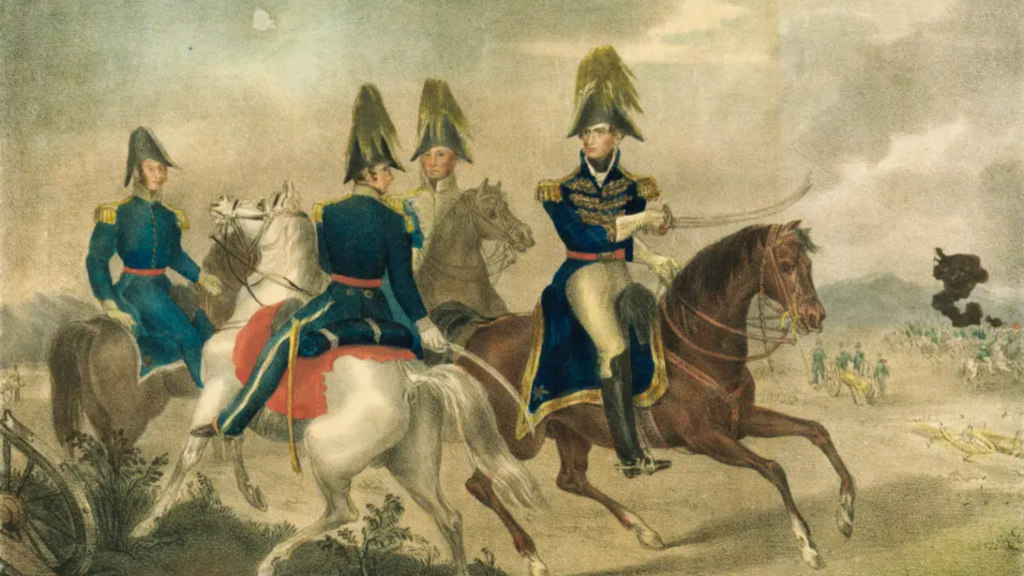
Postwar Life and Political Career
Ohio Politician and Diplomat
Following his resignation from the army in , just before the end of the War of , Harrison returned to his family farm in North Bend, Ohio. However, financial challenges soon arose as his expenses exceeded his means, leading him into debt. Harrison became increasingly drawn to social life and sought recognition at gatherings in New York, Washington, and Philadelphia, choosing “celebrity over duty,” as described by biographer Freehling.
In , Harrison was elected to complete John McLean’s term in the House of Representatives, representing Ohio’s st congressional district until . He made attempts to secure the position of Secretary of War under President Monroe in but lost out to John C. Calhoun. Additionally, he was overlooked for a diplomatic post to Russia during this time. Transitioning to state politics, Harrison served in the Ohio Senate from to , despite losing the election for Ohio governor in . His bid for a seat in the United States House of Representatives in was unsuccessful, losing to James W. Gazlay.
In , Harrison found success when he was elected to the U.S. Senate and served as an Ohio presidential elector in for James Monroe and in for Henry Clay. His diplomatic career began in when he was appointed as minister plenipotentiary to Gran Colombia. He resigned from Congress to assume this role, serving until March , . His tenure in Bogotá was marked by his candid observations of Colombian affairs, including his notable correspondence with Simón Bolívar. Harrison’s criticisms of Bolívar’s governance drew significant attention, leading to his recall by President Andrew Jackson in .
According to biographer James Hall, Harrison’s time in Colombia was tumultuous, marked by clashes with local authorities who viewed his democratic ideals and straightforward demeanor unfavorably. His outspoken criticisms of authoritarianism and his advocacy for democratic development earned him both admiration and controversy in Latin America.
Even after leaving his diplomatic post, Harrison continued to advocate for his principles, as seen in his impassioned letter to Bolívar, which emphasized his deep-seated commitment to liberty and democratic governance.
Private Life
After nearly four decades of government service, Harrison returned to his North Bend farm in the United States, seeking a life of relative privacy. Despite his lengthy career, Harrison had not amassed substantial wealth. He relied on his savings, a modest pension, and income generated from his farm to support himself and his large family. During this period, Harrison was described by M. Chavalier, whom he encountered in Cincinnati, as “poor, with a numerous family, abandoned by the Federal government, yet vigorous with independent thinking”.
In May eighteen-seventeen, Harrison became one of the founding vestry members of Christ Church in downtown Cincinnati (now Christ Church Cathedral), serving on the vestry until eighteen-nineteen and then again in eighteen-twenty-four.
Local supporters rallied behind Harrison, appointing him Clerk of Courts for Hamilton County from eighteen-thirty-six to eighteen-forty. Despite some acclaim back east about his potential for the presidency, Harrison found himself managing a more modest position in his local community. He also engaged in farming, specifically cultivating corn, and briefly operated a distillery that produced whiskey. However, he discontinued this venture after witnessing the detrimental effects of alcohol consumption. In a speech to the Hamilton County Agricultural Board in eighteen-thirty-one, Harrison acknowledged his mistake in producing whiskey and hoped others would refrain from its production.
During this period, Harrison forged a friendship with George DeBaptiste, an abolitionist and Underground Railroad conductor from nearby Madison. Harrison expressed his anti-slavery sentiments, envisioning a future without slavery under a “North American sun”. DeBaptiste eventually served as Harrison’s valet and later as the White House steward.
Burr concludes his account of Harrison with an event recounted by some of his friends—a reception held for Harrison in Philadelphia in eighteen-thirty-six. According to Burr, Harrison was greeted by thousands at Chesnut Street Wharf upon his arrival, with continuous cheering as he disembarked. The enthusiastic crowd overwhelmed the horses pulling his carriage, necessitating the removal of the team to safely transport Harrison to the Marshall House amid the cheers of “ten thousand grateful hearts”. Pennsylvanians, who had fought alongside Harrison, held a deep affection for him, a sentiment witnessed firsthand by Burr.
1836 Presidential Campaign
Harrison emerged as the western Whig candidate for president in the election, alongside three other regional Whig candidates: Daniel Webster, Hugh L. White, and Willie P. Mangum. This strategic move was aimed at unseating the incumbent Vice President Martin Van Buren, the favored Democrat chosen by Andrew Jackson. The Democrats accused the Whigs of splitting their vote to prevent Van Buren from securing a majority in the electoral college, potentially forcing the election into the House of Representatives. Despite these efforts, Harrison ultimately placed second in the election, carrying nine out of the states in the Union.
Harrison’s campaign spanned all non-slave states except Massachusetts, and included Delaware, Maryland, and Kentucky among the slave states. Meanwhile, White focused on the remaining slave states excluding South Carolina, with Daniel Webster concentrating his efforts in Massachusetts, and Mangum in South Carolina. Van Buren secured victory with electoral votes, although a margin of just over votes in Pennsylvania could have swung the state’s crucial electoral votes to Harrison, potentially altering the outcome to be decided by the House of Representatives.
1840 Presidential Campaign
Harrison faced incumbent Van Buren as the sole Whig candidate in the election of 1840. The Whigs saw Harrison as a natural-born southerner and war hero, contrasting favorably with the aloof and aristocratic Van Buren. He was chosen over more controversial figures within the party, such as Clay and Webster; his campaign emphasized his military achievements and focused on addressing the U.S. economic downturn caused by the Panic of 1837.
The Whigs blamed Van Buren for the economic hardships and mockingly dubbed him “Van Ruin”. In response, Democrats derisively referred to Harrison as “Granny Harrison, the petticoat general”, highlighting his early departure from the military before the War of 1812 concluded. They also pointed out the backward spelling of his name as “No Sirrah”, portraying him as an out-of-touch old man who preferred leisurely pursuits like drinking hard cider in his log cabin rather than tending to the nation’s affairs. Ironically, this tactic backfired when Harrison and his running mate John Tyler embraced the log cabin and hard cider as symbols of their campaign.
They prominently featured these symbols on banners, posters, and even produced hard cider bottles shaped like log cabins to connect with the common people. Freehling noted that, “A bitter pro-Van Buren paper lamented after his defeat, ‘We have been sung down, lied down and drunk down.’ In one sentence, this described the new American political process.”
Despite coming from a wealthy, slaveholding family in Virginia, Harrison’s campaign portrayed him as a humble frontiersman in the mold of Andrew Jackson, contrasting sharply with their depiction of Van Buren as a wealthy elitist. One memorable instance was the Gold Spoon Oration delivered by Pennsylvania’s Whig representative Charles Ogle in the House, which mocked Van Buren’s luxurious lifestyle and extravagant spending habits. The Whigs also popularized a chant where people would spit tobacco juice as they chanted “wirt-wirt”, symbolizing the difference between the candidates during that era:
“Old Tip he wore a homespun coat, he had no ruffled shirt: wart wort,
But Matt he has the golden plate, and he’s a little squirt: wart wort!“
The campaign heavily emphasized Harrison’s military background and his heroics at the Battle of Tippecanoe. Their slogan “Tippecanoe and Tyler, too” became iconic in American politics. While Van Buren campaigned from the White House, Harrison traveled extensively, entertaining crowds with his Indian war whoops and diverting attention from the nation’s economic woes. A rally at the Tippecanoe battle site in June 1840 drew an astounding crowd.
The Village of North Bend, Ohio, and Ohio State University alumni attribute the state’s nickname “Buckeyes” to Harrison’s campaign message. Voter turnout soared to an unprecedented percentage, marking a significant increase from the previous election. Harrison secured a landslide victory in the Electoral College with electoral votes to Van Buren’s, although the popular vote margin was narrower, with Harrison carrying nineteen of the twenty-six states.
Presidency (1841)
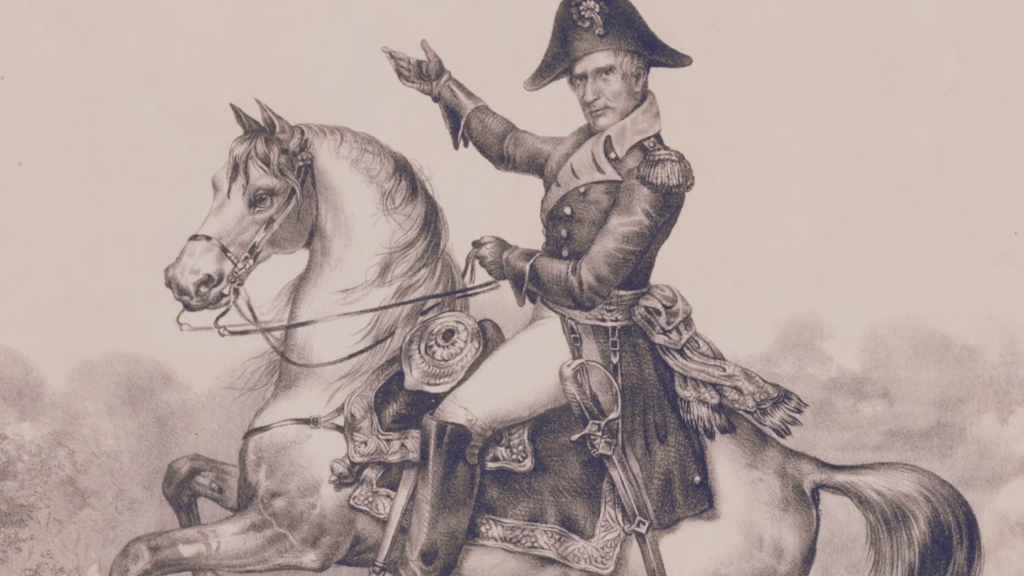
Inauguration
William Henry Harrison’s inauguration as the ninth President of the United States took place on March 4, 1841, in Washington, D.C. Despite the inclement weather, Harrison chose not to wear an overcoat or hat during his lengthy inaugural address, symbolizing his vigor and determination. His speech, lasting nearly two hours and delivered in a clear and resonant voice, focused on themes of national unity, economic prosperity, and limited government.
Harrison’s inauguration was attended by thousands of spectators, including dignitaries and political supporters who gathered to witness the historic event. The ceremony reflected the enthusiasm and optimism of the American people, eager for change under the new Whig administration.
When Harrison arrived in Washington, he aimed to portray himself not just as the hero of Tippecanoe but also as a well-educated and thoughtful leader, countering the backwoods image from the campaign. On March 4, 1841, despite the cold and wet weather, he took the oath of office. Defying the elements, he rode on horseback to the grand ceremony without an overcoat or hat. His inaugural address, at 8,445 words and nearly two hours long, was edited by Daniel Webster for brevity, though such lengthy speeches were common at the time. Freehling notes the irony as Harrison, a career politician elected in a deeply partisan environment, criticized the political status quo.
The address outlined the Whig agenda, rejecting Jackson’s and Van Buren’s policies. Harrison expressed his gratitude for the trust placed in him by the people:
“I too well understand the dangerous temptations to which I shall be exposed from the magnitude of the power which it has been the pleasure of the people to commit to my hands not to place my chief confidence upon the aid of that Almighty Power…”
He pledged to re-establish the Bank of the United States, extend credit through Henry Clay’s American system, and use his veto power sparingly and only on constitutional grounds. Harrison promised a restrained presidency, deferring to Congress on legislative matters and rejecting Jackson’s spoils system. He addressed the contentious issue of slavery, supporting states’ rights:
“The attempt of those of one state to control the domestic institutions of another can only result in feelings of distrust and jealousy…”
Towards the conclusion, Harrison emphasized his reverence for the Christian religion and the importance of religious liberty:
“I deem the present occasion sufficiently important and solemn to justify me in expressing to my fellow-citizens a profound reverence for the Christian religion…”
After the speech, Harrison participated in the inaugural parade, greeted guests at the White House for three hours, and attended multiple inaugural balls, including the renowned “Tippecanoe” ball at Carusi’s Saloon.
The press of patronage
Upon taking office, Harrison faced significant pressure from political figures like Clay, who expected substantial influence in his administration despite their differences. Harrison firmly asserted his presidential authority, famously telling Clay, “Mr. Clay, you forget that I am the President.” This assertion escalated tensions, especially when Harrison appointed Daniel Webster as Secretary of State, bypassing Clay’s preferences. Although Harrison conceded by appointing John J. Crittenden as Attorney General, disagreements persisted throughout his short presidency.
The flood of office seekers further complicated Harrison’s early days in office. The White House, open to all visitors, became inundated with hopefuls seeking appointments. Harrison, overwhelmed by the constant demands, lamented in a letter dated March 10, “I am so much harassed by the multitude that calls upon me that I can give no proper attention to any business of my own.” On one occasion, he was even blocked from attending a cabinet meeting by a crowd of petitioners, whom he eventually accepted despite their overwhelming presence.
Harrison took steps to reform executive appointments, personally inspecting each cabinet department and issuing orders through Webster to dismiss employees engaged in political campaigning. He staunchly resisted pressure from Whig factions demanding the removal of Democrats from appointed positions, declaring, “So help me God, I will resign my office before I can be guilty of such an iniquity!”
In another instance, when his cabinet attempted to overturn his appointment of John Chambers as Governor of the Iowa Territory in favor of Webster’s ally, Harrison asserted his authority decisively. During a cabinet meeting, he interrupted Webster’s arguments with a simple declaration of his position, reinforcing his authority as President.
Harrison’s most consequential decision was whether to convene a special session of Congress to address the nation’s financial crisis. Initially reluctant, Harrison eventually yielded to pressure from Treasury Secretary Thomas Ewing, calling for the session to commence on March 31 to address urgent fiscal matters.
Tragically, Harrison’s presidency was cut short by his untimely death, leaving these early conflicts unresolved and the nation without his full leadership.
Death and Funeral of William Henry Harrison
William Henry Harrison’s presidency was tragically cut short by illness, marking a pivotal moment in American history.
Illness and Decline
On March 24, 1841, Harrison, worn down by the demands of office and a rigorous social schedule, ventured out in inclement weather without protective clothing. Caught in a rainstorm, he returned to the White House soaked but made no effort to change. Within days, he developed cold-like symptoms that quickly escalated. Despite medical attention, including treatments like bloodletting and medications for pneumonia, his condition worsened rapidly.
Final Hours and Last Words
By April 3, Harrison was severely ill, experiencing severe diarrhea and delirium. At 8:30 p.m. that evening, he uttered his final words to his attending doctor, likely directed toward Vice President John Tyler: “Sir, I wish you to understand the true principles of the government. I wish them carried out. I ask nothing more.” These poignant words reflected his commitment to his presidential duties even in his final moments.
Death of a President
Early on April 4, 1841, Palm Sunday, just one month after taking office, William Henry Harrison passed away. His death, attributed at the time to the bad weather during his inauguration, was later speculated to be due to septic shock from contaminated water at the White House.
National Mourning and Funeral
Harrison’s death plunged the nation into mourning, marked by a 30-day period of official observance. The White House hosted solemn ceremonies, mirroring European royal funeral traditions. An invitation-only service was held in the East Room on April 7, followed by a grand procession through Washington, D.C., to Congressional Cemetery. Thousands paid their respects as Harrison’s coffin was interred in the Public Vault.
Final Resting Place
In June 1841, Harrison’s remains were transported to North Bend, Ohio, where he was laid to rest on July 7 atop Mt. Nebo. Today, the William Henry Harrison Tomb State Memorial stands as a testament to his brief but impactful presidency and the reverence with which he is remembered in American history.

https://en.wikipedia.org/wiki/William_Henry_Harrison


